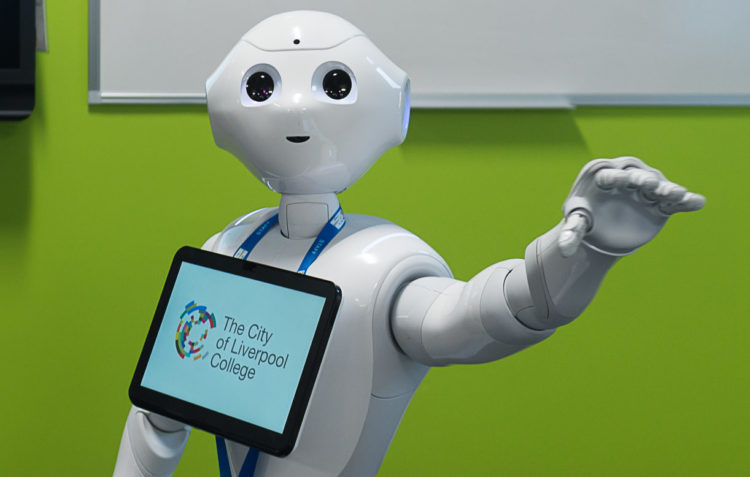Businesses, schools and parents can all help bridge the digital skills gap
Downtown in Business brings together key players in Liverpool’s digital and creative sector for a ‘Power Panel’ discussion on finding and developing people with the right skills. Tony McDonough reports

There is still too much of a disconnect between employers, parents, schools and colleges across the Liverpool city region when it comes to bridging the digital and creative skills gap.
That was one of the clear messages that came from a high-level discussion in Liverpool, organised by lobby and membership organised by Downtown in Business (DiB) and chaired by Paul Corcoran, managing director of Agent Marketing and representative of the digital and creative sector on the board of the Liverpool City Region LEP.
Under the heading Digital Power Panel – The Future of Media, those round the table included entrepreneurs and executives from the digital and creative sector and the hospitality and the professional services sectors.
The discussion was conducted under ‘Chatham House Rules’ which means we can report what was said – but not who said it and was the latest in a series of Power Panel events organised by DiB.
Key locations
Paul Corcoran opened the session, briefly outlining the current scale of the digital and creative sector in the city region, where it currently employs 22,000 people and provides an annual GVA contribution of £1.8bn.
He spoke about the key locations for the sector, including Liverpool Science Park, the Baltic Triangle and Sci-Tech Daresbury and he also pointed out that it is no longer a “standalone sector” but now encompasses other business sectors.
A number of people on the panel said that Liverpool didn’t do enough to shout about its successes and plus points and therefore was not attracting enough skilled people from elsewhere.
“In the city region we often talk about what we are not good at rather than promoting what we are good at,” said one panel member. “For example, Liverpool has a fantastic pedigree in video game development and we should be highlighting that more. Promoting what we do in a more targeted way.”
Infrastructure issues
A senior member of the city’s professional sector said Liverpool needed to up its game in terms of the infrastructure: “I work in the city centre and we need to see a big improvement in things such as broadband speed and transport infrastructure. Physically getting in and out of the city at the moment is a problem.
“We find that people now prefer to live in and around the city centre because we do offer a fantastic quality of life here, compared to other cities.”
One representative of a digital firm around the table agreed that location was important in attracting the right people. He explained: “We are Wirral-based but since we have opened a base in Liverpool we have witnessed a big step-up in our ability to recruit people.”
Another entrepreneur of a small firm also said one of the keys to attracting and retaining people with the right skills was an organisation’s “onboarding” process, which was about offering people the right opportunities and career path.
He said: “When someone joins a company, in the first few weeks they may ask whether they feel confident about their career path within the organisation. If they feel that company is going to go somewhere, and they can go with it, then they will be more inclined to stay.”

Another panel member, who employs 150 people in the hospitality sector, was optimistic about Liverpool’s offer. She explained: “We work in other locations in the UK, including Preston, and I have to say Liverpool has a real positive story to tell.
“We are still behind places such as Manchester but we are catching up with them. The amazing success of our tourism sector in the last few years is helping us attract people here. When they come here as visitors, and see what a fantastic place it is, they will be more inclined to move here in the future.”
Young people
Attracting people who already have the skills was a major aspect of the panel event and the other main area for discussion was the question of how we can offer the rights skills and opportunities for young people across the city region.
The panel heard how the City of Liverpool College had set up a Digital Academy and was now offering digital science and computing skills to more than 700 students. Paul Corcoran also talked about the success of Agent Marketing’s own in-house academy.
But there was widespread acknowledgement that there was still some way to go and it was agreed that the culture of learning and encouragement must begin in the schools and in the home.
One further education professional said: “We are often having to re-educate people with basic skills. We have people coming into catering who don’t even know how to pick up a knife.”
Another added: “Schools are often just focused on exam results in and some cases they are dropping subjects such as ICT which means kids aren’t getting the skills they need early on.”
Value of apprenticeships
It was generally agreed that apprenticeships offered huge value to both young people and businesses, with one panel member saying: “Apprenticeships offer the ‘Holy Grail’ – a bridge between real workplace experience and academic learning.”
One entrepreneur, now in his 40s, is an enthusiastic gamer, a passion he picked up as a youngster. He said: “When I told my dad I wanted to be a games programmer he didn’t take me seriously and told me to give it up.”
Picking up that point, another panel member who regularly speaks to schools, added: “We need to educate the ‘gatekeepers’ such as parents and teachers they they need to become ‘critical friends’. I have found that as soon as you engage kids, they immediately light up.”
It was agreed that businesses had a major role to play in this process and that they needed to reach out more to schools and parents and that the process of identifying the transferable skills they already possess was vitally important, as was building confidence.

Another panel member said: “I know people who did fantastic at university, achieving a first, but they don’t know how to speak to people.
“Confidence and social skills are hugely important. They need to know that they don’t have to just start doing one thing and stick with it. Once they start something they have the freedom to adapt what they learn and do something else. Grabbing that freedom comes from confidence.”
Getting into schools
One entrepreneur on the panel added: “As businesses we need to be in schools taking about what we do. And we also have to persuade schools that it is not just about the big businesses but that small firms offer great opportunities, too.”
At the close of the session, Paul Corcoran asked each member of the panel to make a specific commitment to make their own efforts to address the skills gap.
And one panel member summed up by saying: “In the traditional school environment young people are sleepwalking into an unknown future and it is not until they get to the next stage that they start asking questions about their future. We have to offer them an insight into what opportunities are out there and bring them to life.”

